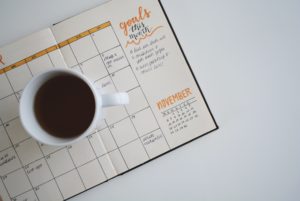Impact of Hidradenitis Suppurativa
Many of you will have come across research about the consequences of HS on your quality of life. I did when I was first diagnosed and so it was upsetting. It was possible to overcome it because I had been working on my coping skills and building resilience.
I would like you to consider a few things before we move on. Scientific studies are used to inform medical professionals. Those studies were done with a certain purpose, for example, to help diagnose the condition better or to test a treatment.

It’s good that conditions like HS are being studied and when people read them it can help them to keep themselves informed about developments in treatment.
A single study, however, is more like a piece of a puzzle so it can’t give an overall picture. From a day to day perspective you may not see any benefit from having the information.
Psychology can help us to find those things that may make our lives better in general so I’m going to talk to you today about coping and resilience. There are certain things you can do in your life to enhance your ability to cope and bounce back from hardship. Firstly, what do we mean by resilience and coping?
What’s the difference between Resilience and Coping?
Coping is your ability to put in place strategies when you encounter a challenge, so that challenge doesn’t impact your mental wellbeing too much. According to Greater Good Science Centre, UC Berkley, resilience is “the ability to recover from hardship and move forward in a positive, adaptive way.” As you can see coping is what you do in the present to deal with a challenge and resilience is your ability to cope with challenges and still move forward in a way that’s healthy for you.
Would that it was that simple, right? Luckily psychology research may have some answers so here are three strategies that can help you cope and build your resilience:
1. Social Support
One of the biggest factors in a person’s ability to handle life’s challenges, whether they are work-related, medical conditions, or any other problem you encounter is the people around you. According to the American Psychological Association, the best way to manage your health-related stress is through your social network.

Ask for help when you need it and make sure you have people to confide in. Make plans with a friend to go for coffee and talk about movies; it doesn’t have to always be a serious conversation, and If you can’t meet people face to face, try Skype calls or text. We have so many forms of communications, staying connected has never been easier. An option for those who may not be ready to tell their friends and loved ones about their condition may be online support groups.You can join the HidraWear support group here . Groups on social media, can provide information, answer questions, or just allow you to talk to people who are going through something similar.
2. Routine and small goal planning
Routine can be hard, especially for people living with chronic illness because flares can disrupt your plans. Now many of us are self-isolating at home because of the pandemic. However, routines are so important to our ability to feel like our lives have purpose and structure.
In an article from Scientific American Mind in 2015 called Everyday, Routines Make Life Feel More Meaningful, research suggests that routine tasks like brushing your teeth or tidying your desk, make your life feel more meaningful.
The article says:
“Psychologists have proposed three aspects: significance, purpose and coherence. In other words, life is meaningful when it feels important, when it seems to have a point and when it makes sense.”
Planning your days can make your life feel like it has a purpose and makes sense, as well as giving you a sense of control in your environment.

For those of us that find routines difficult because of HS, setting small goals in our day like washing the dishes or read one chapter of a book could be helpful. It means that there is no pressure on you to do lots of work, your body may not feel up to, but you do a little that’s makes you feel proactive. In some cases, once you start you can do more ` than you thought you could, just by getting started.
3. Building your Sense of Self-Efficacy
Self-efficacy is your ability to succeed in those things you want to. It includes self-esteem, beliefs about your capabilities and confidence in yourself.
It makes you feel more in control of your life. The opposite is learned helplessness, where we don’t believe we can do anything because of circumstance beyond our control.
That’s not you.
Think about what you do when you have a flare, do you have a preferred cream or method of taking down swelling? Maybe you take a bath? These are the things that you do to look after yourself and you know work for you. It is part of your knowledge about your body, which you are the expert in.
So what can we do?
If you are kind of person who needs to do something to get out of your headspace, consider volunteering. Volunteerism gives you a sense of purpose, builds relationships, provides opportunities to learn and build skills. As a bonus, it helps others.Right now, might not be such a good idea for you to volunteer outside of your home. Consider any online groups you are a member of, find out if they need admin volunteers or moderators.

On days when you feel like you have done absolutely nothing all day, one strategy that could be helpful is a reverse to-do list. Rather than writing down a list of things you need to do today, write down those things that you have done. This reminds you that although you may not have done everything you wanted to, you were still productive.
If you take anything from this article, let it be that you are far more capable than you think or as Winnie the Pooh (A.A. Milne) said,
“You are braver than you believe, stronger than you seem, and smarter than you think.”
You can do this!

Shannon Sweeney is a psychology and sociology student from Ireland. She is also living with HS and has a keen interest in lifestyle, wellbeing, and Hidradenitis Suppurativa.


